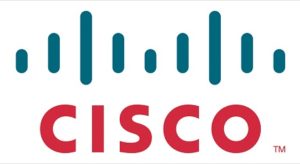| Datum | Ort | Seminar | Info |
|---|---|---|---|
| 31.08. - 04.09.2020 | Online Training | Implementing and Administering Cisco Solutions (CCNA) |
Implementing and Administering Cisco Solutions (CCNA)
Zielgruppe
This course is designed for anyone seeking CCNA certification. The course also provides foundational knowledge for all support technicians involved in the basic installation, operation, and verification of Cisco networks.
The job roles best suited to the material in this course are:
- Entry-level network engineer
- Network administrator
- Network support technician
- Help desk technician
Vorkenntnisse
Before taking this course, you should have:
- Basic computer literacy
- Basic PC operating system navigation skills
- Basic Internet usage skills
- Basic IP address knowledge
Lernziele
The Implementing and Administering Cisco Solutions (CCNA) v1.0 course gives you a broad range of fundamental knowledge for all IT careers. Through a combination of lecture and hands-on labs, you will learn how to install, operate, configure, and verify basic IPv4 and IPv6 networks. The course covers configuring network components such as switches, routers, and wireless LAN controllers; managing network devices; and identifying basic security threats. The course also gives you a foundation in network programmability, automation and software-defined networking.
This course helps you prepare to take the 200-301 Cisco® Certified Network Associate (CCNA®) exam. By passing this one exam, you earn CCNA certification. The 200-301 CCNA exam goes live on February 24, 2020.
After taking this course, you should be able to:
- Identify the components of a computer network and describe their basic characteristics
- Understand the model of host-to-host communication
- Describe the features and functions of the Cisco Internetwork Operating System (IOS®) software
- Describe LANs and the role of switches within LANs
- Describe Ethernet as the network access layer of TCP/IP and describe the operation of switches
- Install a switch and perform the initial configuration
- Describe the TCP/IP Internet layer, IPv4, its addressing scheme, and subnetting
- Describe the TCP/IP Transport layer and Application layer
- Explore functions of routing
- Implement basic configuration on a Cisco router
- Explain host-to-host communications across switches and routers
- Identify and resolve common switched network issues and common problems associated with IPv4 addressing
- Describe IPv6 main features and addresses, and configure and verify basic IPv6 connectivity
- Describe the operation, benefits, and limitations of static routing
- Describe, implement, and verify virtual local area networks (VLANs) and trunks
- Describe the application and configuration of inter-VLAN routing
- Explain the basics of dynamic routing protocols and describe components and terms of Open Shortest Path First (OSPF)
- Explain how Spanning Tree Protocol (STP) and Rapid Spanning Tree Protocol (RSTP) work
- Configure link aggregation using EtherChannel
- Describe the purpose of Layer 3 redundancy protocols
- Describe basic WAN and VPN concepts
- Describe the operation of access control lists (ACLs) and their applications in the network
- Configure Internet access using Dynamic Host Configuration Protocol (DHCP) clients and explain and configure network address translation (NAT) on Cisco routers
- Describe basic quality of service (QoS) concepts
- Describe the concepts of wireless networks, which types of wireless networks can be built, and how to use Wireless LAN Controllers (WLCs)
- Describe network and device architectures and introduce virtualization
- Introduce the concept of network programmability and Software-Defined Networking (SDN) and describe smart network management solutions such as Cisco DNA Center™, Software-Defined Access (SD-Access), and Software-Defined Wide Area Network (SD-WAN)
- Configure basic IOS system monitoring tools
- Describe the management of Cisco devices
- Describe the current security threat landscape
- Describe threat defense technologies
- Implement a basic security configuration of the device management plane
- Implement basic steps to harden network devices
Course Benefits
This course will help you:
- Learn the knowledge and skills to install, configure, and operate a small- to medium-sized network
- Gain a foundation in the essentials of networking, security, and automation
- Prepare for the 200-301 CCNA exam, which earns CCNA certification
Kurssprache
Das Seminar wird in Deutsch abgehalten.
Weitere Informationen
Die Kursteilnehmer erhalten Digitale Kursunterlagen und Verpflegung.
Veranstaltungsort
Hamburg, München, Frankfurt am Main,
Stuttgart, Berlin
Schulungsart
Online-Training
Seminarschwerpunkt
Grundseminar
Dauer
5.0 Tage
Preis
2.890 € p.P.
SIE WÜNSCHEN EIN INDIVIDUELLES ANGEBOT?
Sie haben noch nicht das passende offene Training gefunden oder wünschen einen individuellen Workshop? Sprechen Sie uns an – gerne unterbreiten wir Ihnen ein maßgeschneidertes Angebot: anfragen@bristol.de






